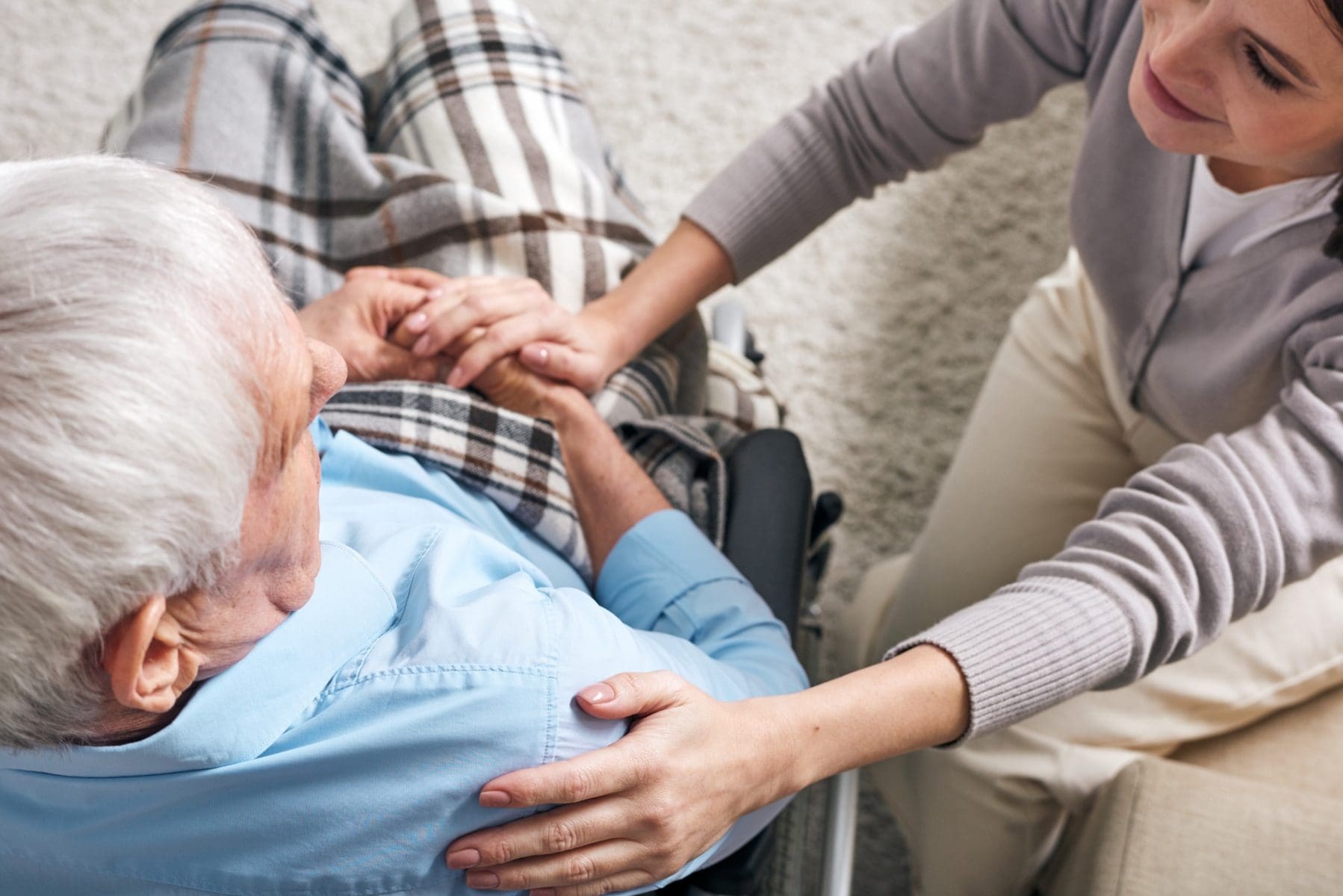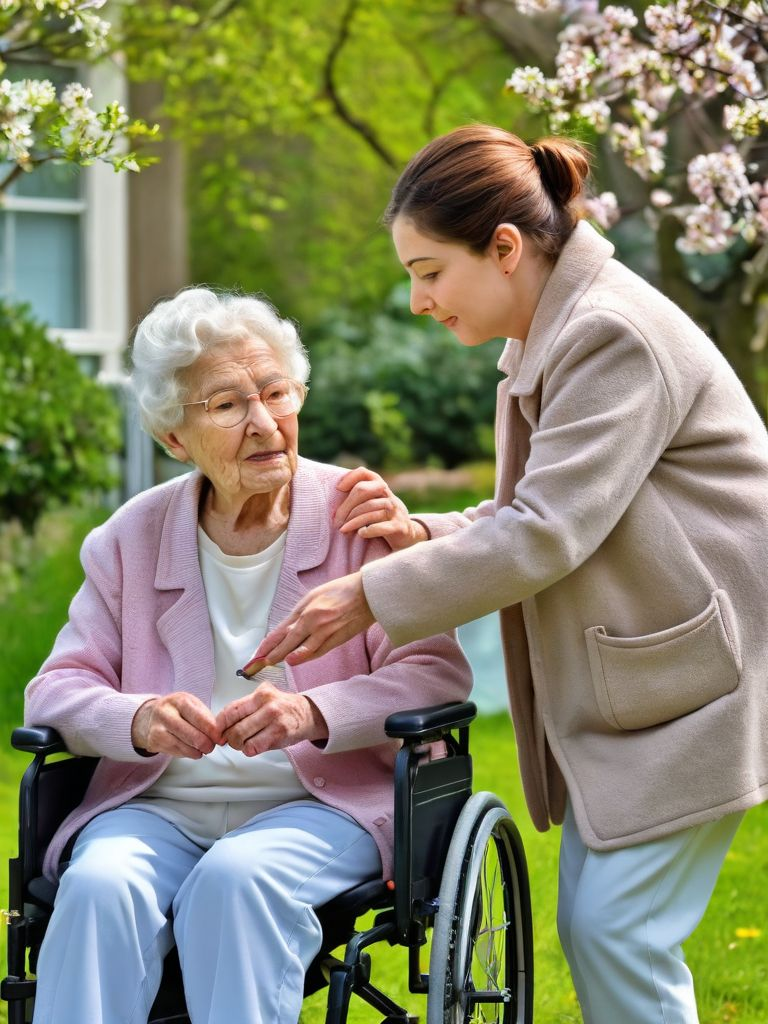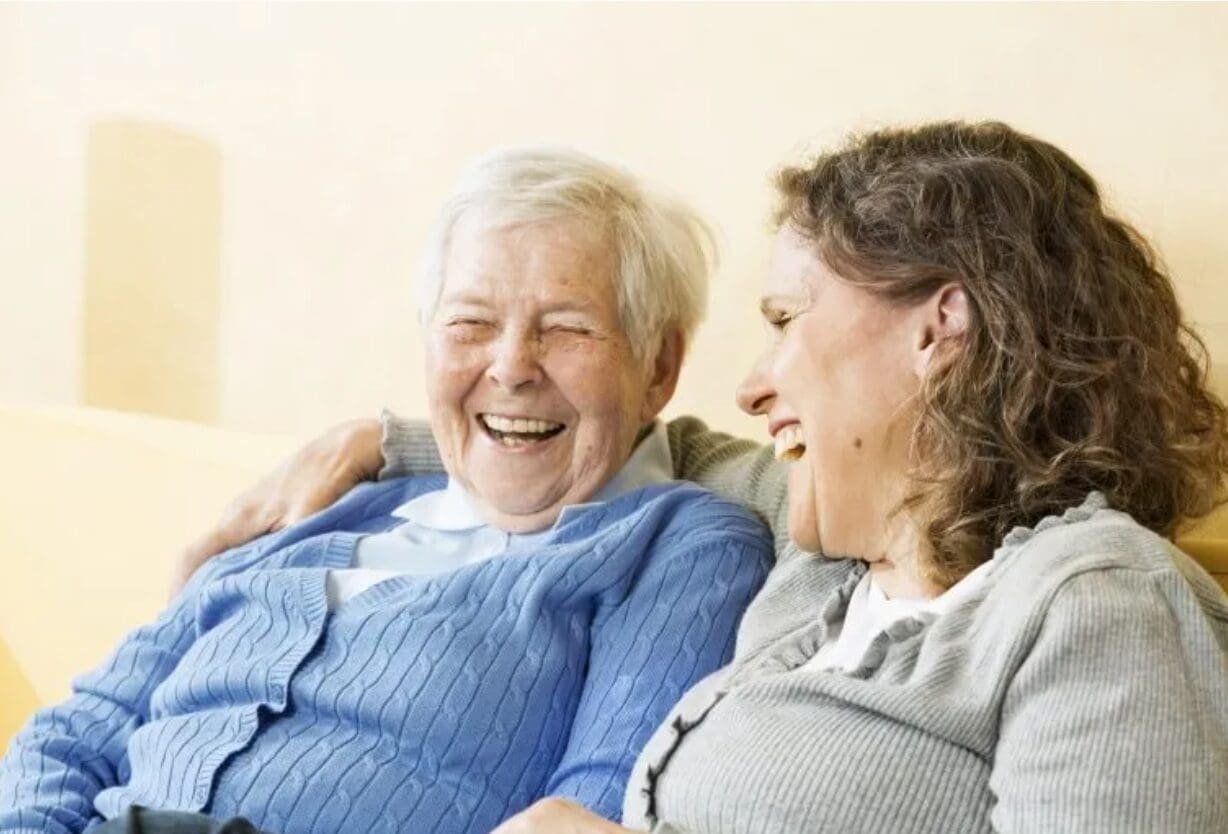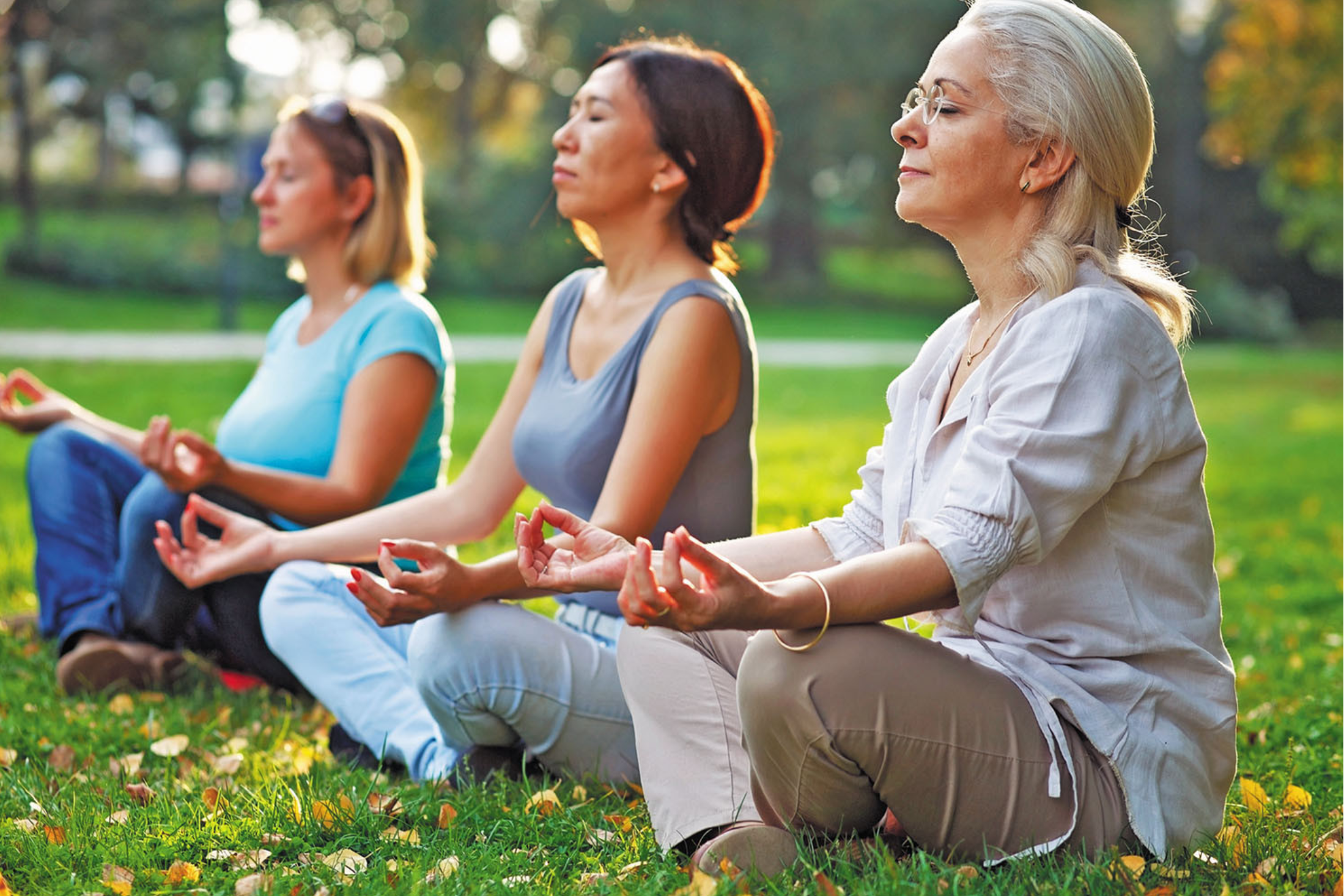
Unveiling How a Caregiver Agency Improves the Quality of Life for Seniors
June 6th, 2025Caregiver Agency, Companion Caregiver, Elderly Care,
Do you have an elderly person in your home who needs a supportive hand for almost all the day-to-day tasks? Having a caregiver at home will help the senior member with all the essential tasks and provide extensive care to improve their quality of life. You can choose a reputable caregiver agency with experienced professionals to offer your aged parents or other senior family members the best possible care.
In this blog, we will elaborate on how a caregiver agency improves the quality of life for seniors in Greenwich.
Exploring the Role of a Caregiver in Elevating the Elderly People’s Quality of Life
Assists with Physical Activities
As people age, they encounter numerous challenges with daily tasks. They often required someone to support them in moving around and even when going to the washroom. This is where a caregiver comes into play, by providing extensive support for everyday tasks for the senior member. Our professional caregivers have years of experience and knowledge in helping aged people with bathing, dressing, grooming, and mobility.
Offers Extensive Emotional Support
A senior member in your home needs the most emotional support than the rest of your family members. Sometimes, it becomes hard for other family members to spend some time with the elderly people due to many tasks and their daily routine. A professional caregiver spends the most hours in a day with the senior member and provides extensive emotional support to help them maintain social connections and keep their minds active.
Give the Aged People a Sense of Independence
Due to physical limitations and a lack of confidence, the senior members are often dependent on others, which affects their emotional health significantly. Most of the time, these members isolated themselves. Our expert caregivers give them a sense of independence by creating personalized care plans, ensuring seniors feel valued and appreciated.
Provide Support to Families
Handling elderly people can be stressful for the rest of your family members. A caregiver provides extensive care for the senior member to reduce the stress on other family members. The caregivers also give family members peace of mind by assuring exceptional support for their loved ones.
In a Nutshell
A caregiver agency helps senior persons in various ways by providing expert caregivers for them. Our senior assistance services are curated to make quality-of-life changes for elderly people. If you also need a caregiver for your loved one, don’t hesitate to contact us directly.

Fun Activities for Seniors During Springtime
March 20th, 2025Elderly Care, Senior Living, Senior Services,
Spring is a season of renewal, blooming flowers, and warmer days—a perfect time for seniors to step outside, engage in meaningful activities, and enjoy the beauty of nature. For caregivers and those involved in elderly care, planning fun, accessible, and enriching activities can enhance seniors’ physical health, mental well-being, and social connections. Whether it’s a solo adventure, a group outing, or a quiet moment at home, springtime offers endless opportunities to create joy. Below, we explore a variety of senior activities tailored to different interests and abilities, ensuring that everyone can embrace the season.
1. Gardening: A Hands-On Connection to Nature
One of the most rewarding springtime activities for seniors is gardening. The act of planting seeds, tending to flowers, or growing fresh herbs engages the senses and provides a sense of accomplishment. For seniors with limited mobility, caregivers can set up raised garden beds or small potted plants on a patio or windowsill. Gardening promotes light physical exercise, improves dexterity, and offers a therapeutic way to reduce stress.
Caregivers can make it a group effort by organizing a community garden day at a senior center or assisted living facility. Pairing seniors with younger volunteers or family members can foster intergenerational bonding. Imagine the delight of watching a seedling sprout into a vibrant flower or harvesting homegrown basil for a spring salad—it’s a simple yet profound joy that connects seniors to the rhythms of the season.
2. Nature Walks and Birdwatching
Spring awakens the natural world, making it an ideal time for seniors to enjoy leisurely walks or birdwatching excursions. A stroll through a local park or nature trail allows seniors to breathe fresh air, soak in sunlight for a natural dose of Vitamin D, and observe blooming trees and chirping birds. Caregivers should choose flat, accessible paths and bring along a lightweight chair or walker if needed.
Birdwatching adds an extra layer of excitement. Equip seniors with binoculars and a simple bird guidebook, and encourage them to identify species like robins, bluebirds, or cardinals, which are especially active in spring. For those who prefer staying close to home, setting up a bird feeder near a window can turn a quiet afternoon into an engaging birdwatching session. This activity stimulates curiosity and provides a low-effort way to stay connected to the outdoors.
3. Spring Picnics with a Twist
A picnic is a classic springtime activity that seniors can enjoy with minimal planning. Caregivers can pack a light meal—think sandwiches, fresh fruit, and iced tea—and head to a shady spot in a park or backyard. To make it special, add a twist like a themed picnic (e.g., a “spring fling” with floral decorations) or live acoustic music from a portable speaker. If mobility is a concern, a picnic can even be held on a porch or in a community room with open windows to let in the spring breeze.
Social interaction is key in elderly care, so invite friends, family, or fellow residents to join. A shared meal outdoors fosters conversation and laughter, lifting spirits and combating loneliness. For an added touch, caregivers can encourage seniors to share springtime memories—like their favorite childhood picnic or a past gardening triumph—turning the event into a storytelling celebration.
4. Arts and Crafts Inspired by Spring
For seniors who enjoy creative pursuits, spring-themed arts and crafts offer a delightful indoor or outdoor activity. Caregivers can organize a session to paint flower pots, create watercolor landscapes, or craft wreaths using faux flowers and ribbons. These projects are adaptable to various skill levels and can be done individually or in a group setting.
One idea is to host a “spring art gallery” where seniors display their creations for peers or family to admire. This boosts confidence and provides a sense of purpose. For those with limited hand strength, try simpler tasks like arranging pressed flowers into a collage or decorating a birdhouse. The vibrant colors and themes of spring—think pastel pinks, yellows, and greens—naturally inspire creativity and brighten any space.
5. Outdoor Games and Light Exercise
Spring’s mild weather is perfect for outdoor games that keep seniors active without overexertion. Classics like bocce ball, croquet, or horseshoes are gentle on the joints and encourage friendly competition. Caregivers can set up a mini-tournament at a senior living facility or park, complete with small prizes like flower seeds or a spring-themed mug.
For a more relaxed option, try chair yoga or tai chi in the backyard or a sunny courtyard. These exercises improve balance, flexibility, and mood, all while allowing seniors to enjoy the fresh air. Pair the session with calming spring sounds—like a playlist of birdsong or flowing water—to enhance the experience. Physical activity is a cornerstone of elderly care, and these lighthearted options make it feel like play rather than work.
6. Springtime Storytelling and Memory Sharing
Spring often evokes nostalgia, making it a wonderful time for seniors to share stories from their past. Caregivers can organize a storytelling circle where participants recount memories of springtime traditions, such as Easter celebrations, May Day dances, or childhood adventures in the rain. Provide prompts like “What’s your favorite spring flower?” or “Tell us about a spring day you’ll never forget” to get the conversation flowing.
For a modern twist, record these stories using a smartphone or tablet to create a digital keepsake for families. Alternatively, turn the tales into a group writing project, compiling them into a spring memory book. This activity not only stimulates the mind but also reinforces seniors’ sense of identity and value within their community.
7. Visiting Farmers’ Markets
A trip to a local farmers’ market is a sensory-rich outing that seniors and caregivers can enjoy together. The vibrant stalls filled with fresh produce, handmade goods, and blooming plants capture the essence of spring. Seniors can pick out ingredients for a meal, select a bouquet of flowers, or simply people-watch while sipping a cool drink.
Caregivers should plan for accessibility—bring a wheelchair or ensure seating is available—and keep the visit short if energy levels are a concern. Back home, turn the market haul into a fun activity, like preparing a spring salad or arranging flowers in a vase. This outing combines social engagement, light exercise, and the joy of seasonal discovery.
8. Music and Dance in the Sunshine
Music has a universal appeal, and spring is the perfect backdrop for a senior-friendly concert or dance party. Caregivers can arrange an outdoor singalong with classic tunes from the seniors’ youth or hire a local musician for a small performance. Add a dance element—whether it’s swaying in a chair or a slow waltz with a partner—to get the blood flowing and spirits soaring.
If an outdoor event isn’t feasible, bring the music indoors near an open window or on a covered porch. Pair it with spring-themed refreshments like lemonade or fruit skewers. Music and movement are powerful tools in elderly care, lifting moods and sparking joy in even the most reserved participants.
Making Spring Memorable for Seniors
Springtime activities for seniors don’t need to be elaborate to be meaningful. The key is tailoring them to individual preferences, abilities, and energy levels, while ensuring caregivers provide support and encouragement. Whether it’s digging in the dirt, listening to birds, or sharing a laugh over a picnic, these moments foster connection—to nature, to others, and to oneself.
For caregivers, these activities are also an opportunity to build trust and companionship with those in their care. Elderly care thrives on patience and creativity, and spring offers a natural canvas to make every day a little brighter. As the flowers bloom and the days lengthen, seniors deserve to experience the season’s magic in ways that uplift their hearts and souls. So, grab a sunhat, step outside, and let the springtime fun begin!
Author: Monika Skiba for Polish Care Services a non medical caregiver agency for seniors.
Healing Power of Meditation: Enhancing Well-being for the Elderly
November 26th, 2024Caregiver Service, Companion Caregiver, Elderly Care,

Preparing for the Holidays with Your Elderly Loved One
November 13th, 2024Companion Caregiver, Companion Senior Care, Elderly Care, In Home Care, Polish Care Services, Preparing for the Holiday,
The holiday season, with its joy and festivities, provides a perfect opportunity to cherish time with family, especially our elderly loved ones. However, for seniors, especially those requiring care, this time can also bring challenges. Here’s a comprehensive guide on how to prepare for the holidays, ensuring they are enjoyable and stress-free for everyone involved, focusing on the essential roles of companion caregivers and the broader scope of elderly care.
Understanding the Needs of Elderly During the Holidays
Health Considerations:
– Medical Needs: Before diving into holiday planning, review your loved one’s health with their healthcare provider. Ensure any necessary adjustments to medication or diet are made to fit the holiday schedule.
– Mobility: Consider how holiday festivities might impact mobility. If your loved one uses mobility aids, ensure they are in good condition.
Emotional and Social Needs:
– Isolation: Holidays can be particularly isolating for seniors. Plans should include ways to engage them socially.
– Memory Issues: For those with cognitive impairments like dementia, routine is key. Introduce holiday changes gradually.
The Role of Companion Caregivers
Companionship:
– Engagement: Companion caregivers can play a pivotal role in keeping seniors engaged. Activities could range from crafting holiday decorations to watching classic holiday movies together.
– Outings: If feasible, outings to see holiday lights or community events can be delightful, with caregivers ensuring safety and comfort.
Support in Daily Activities:
– Meal Preparation: Holiday meals might require different preparations. Caregivers can assist in cooking or adapting recipes to meet dietary needs without losing the festive spirit.
– Personal Care: Ensuring that personal care routines continue amidst holiday busyness is crucial for maintaining health and comfort.
Planning and Execution
Early Start:
– Shopping: Begin shopping early to avoid the last-minute rush, which can be overwhelming for seniors. Online shopping with caregivers can be a fun activity or a necessary convenience.
– Decorations: Involve your loved one in decorating to the extent they can. This not only makes them feel included but can also stimulate memory and cognitive functions.
Safety First:
– Home Environment: Ensure the home is safe for holiday activities. Secure decorations, manage cords to prevent tripping, and consider the placement of the Christmas tree or menorah to avoid fire hazards.
– Emergency Plan: Have an emergency plan in place. Know where the nearest hospital is, have emergency numbers accessible, and ensure caregivers are briefed on any specific health concerns.
Celebrating Together
Adapting Traditions:
– Simplifying: Sometimes, traditional celebrations might need scaling down. Focus on what truly matters; for instance, a small, intimate gathering might be more comforting than a large party.
– Inclusion: If your loved one can’t participate in every event, find ways to include them, like video calls during family gatherings.
Special Activities:
– Memory Sharing: Encourage storytelling sessions where seniors can share past holiday memories. This not only entertains but also preserves family history.
– Crafts and Cooking: Involve them in holiday crafts or simple cooking tasks they can manage, promoting a sense of contribution and creativity.
Caregiver Support
Respite for Family Caregivers:
– Professional Help: Consider hiring professional care during peak holiday activities to give family caregivers a much-needed break.
– Self-Care: Remind family caregivers to look after their own well-being, ensuring they also enjoy the holidays.
Training and Preparation:
– Handling Emergencies: Ensure caregivers are trained in first aid and know how to manage holiday-specific emergencies like food poisoning or falls.
– Cultural Sensitivity: If your traditions involve specific cultural practices, ensure caregivers are sensitive to these, enhancing the experience for everyone.
Technology in Elderly Care
Digital Engagement:
– Virtual Gatherings: Use technology to connect with family members who can’t visit in person. Caregivers can assist in setting up video calls or teaching seniors how to use these tools.
– Health Monitoring: Utilize health apps or devices to keep track of vitals or medication schedules, which can be particularly helpful during the chaotic holiday season.
Post-Holiday Care
Recovery and Reflection:
– Rest: After the festivities, ensure there’s ample time for rest. The excitement can be exhausting for the elderly.
– Review: Reflect on what worked well during the holidays and what could be improved for future celebrations, keeping notes for next year.
Conclusion
Preparing for the holidays with an elderly loved one involves a delicate balance of celebration, care, and safety. By leveraging the support of companion caregivers, embracing senior care practices, and adapting to the unique needs of elderly care, you can create a holiday season that is not only memorable but also nurturing. This time of year can become a cherished period where love, care, and tradition intermingle, providing warmth and joy to all, especially those who might need a little extra attention during the festive times. Remember, the goal isn’t just to celebrate, but to do so in a way that honors and includes our elderly loved ones in every possible way. Polish Care Services provide non-medical assistance to seniors and disabled to enjoy quality of life, please contact us for more information.

Making Exercise Accessible When You Have a Hidden Disability
June 11th, 2024aging in place, Disability Care, Elderly Care, Senior Services,
Remaining physically active is important for everyone’s overall health and well-being, and it’s especially critical for people with disabilities. The thing is, it can be hard to find a fitness regimen that works when you have a hidden disability. Whether you’re looking for practical things for staying fit in your daily life or ways to establish a healthy morning routine, these tips from Polish Care Services can help you get started.
Seek Help from the Experts
Seeking out a chiropractor if you have a hidden disability can offer numerous benefits and be a potential resource for improved wellness. Chiropractic care focuses on the alignment of the spine and nervous system, which can improve overall body function and reduce pain. For those with hidden disabilities, such as chronic pain, fibromyalgia, or neurological disorders, chiropractic adjustments can enhance mobility, decrease discomfort, and promote a sense of well-being. Additionally, chiropractors often provide personalized treatment plans that address specific needs, offering a holistic approach to managing symptoms and improving quality of life. You can also seek non-medical assistance from the staff at Polish Care Services if there are disabilities that affect daily life and
Staying Fit in Daily Life
If going to the gym or joining a sports team is not a feasible or comfortable option for you, it doesn’t mean that exercise is out of the question. Cleveland Clinic suggests seeing how you can make your home more conducive to your fitness and health goals, whether that means creating a home gym, upgrading your kitchen, or planting a garden.
While it’s important that you know your limits, consider incorporating more movement into your daily routine, as well. Take the stairs more often, park your car further away from your destinations, run errands on foot whenever possible, and stand up and move around every hour if you have a sedentary job.
You could also try practicing yoga or doing chair exercises, which can help improve flexibility and mobility. Or you could take Fido your dog on more walks – just make sure you have a reliable harness to keep him (and others) safe!
Maintaining a Supportive Social Network
Having a good social network is important for anyone trying to establish a fitness routine. But when you have a hidden disability, it’s non-negotiable. Consider joining a sports team, online support group, or fitness class that caters to people with similar struggles. Fitbit notes that this can give you access to invaluable resources, advice, and companionship to aid your journey.
Having a hidden disability doesn’t have to limit your ability to exercise. Incorporate movement into your daily routine, put a morning routine in place, and surround yourself with supportive people. The key is to find what works best for you and your body and to challenge yourself (but not too much). Most importantly, remember to have fun and enjoy the process!
Polish Care Services provides high quality service, compassion and professionalism. Let us know if you have any questions!
Credit: June Duncan

Springtime Activities For Seniors
April 5th, 2024Companion Caregiver, Elderly Care, In Home Care, Senior Services, Spring Activities,

Beyond Retirement: A Guide to Purposeful & Healthy Senior Living
March 5th, 2024aging in place, Elderly Care, Polish Care Services, Senior Living,
Starting over in a new city presents a blend of challenges and opportunities for a purposeful and healthy senior living, especially for senior citizens. It’s a phase that demands resilience but also paves the way for growth and new beginnings. With thoughtful preparation and a positive mindset, navigating this significant change can lead to a rewarding experience. This Polish Care Services guide offers strategic advice to ensure a smooth transition, empowering you to establish a vibrant and fulfilling life in your new locale.
Knowing the Area
Before you embark on your journey, it’s crucial to have a deep understanding of your future home. Evaluate the cost of living, healthcare facilities, recreational activities, and the proximity to family and friends. This groundwork will not only assist in making an informed decision on senior living but also in setting realistic expectations. By prioritizing what’s most crucial, you can find a place that aligns with your lifestyle and needs, ensuring a smoother adjustment to your new surroundings.
Finding Employment
For those looking to remain active in the workforce, securing employment beforehand offers financial stability and a sense of purpose. It connects you to the community and provides a routine, making the transition to a new environment less overwhelming.
Investigate job opportunities that cater to your skills and interests, and leverage professional networks to facilitate your job search. This proactive approach can significantly ease your integration into the city’s social and economic fabric.
Changing Your Lifestyle
Embarking on a fresh chapter of life frequently prompts a reevaluation of personal habits, especially regarding alcohol consumption. For individuals who have turned to alcohol as a coping mechanism, connecting with local rehabilitation centers is a crucial step toward a more healthful life.
Knowing how to seek recovery help is critical as you navigate through this new journey. Just be sure to research different facilities’ treatments, costs, and reviews before proceeding; some places offer free services if you have health insurance.
Getting More Social
Building a new social network is pivotal for feeling connected and supported in your senior living journey and lifestyle. Engage in clubs, groups, or organizations that reflect your interests, be it a book club, a gardening group, or a volunteer project. These platforms offer opportunities to meet like-minded individuals, fostering friendships and a sense of belonging. This social engagement is vital for emotional well-being, helping you to feel part of the community and reducing feelings of isolation.
Exploring the City
Immersing yourself in the city’s culture and environment is a delightful way to feel more at home. Take the time to explore different neighborhoods, visit landmarks, and enjoy local cuisine. This exploration not only acquaints you with the area but also allows you to discover new favorites and routines. It’s a fun and engaging way to connect with your new city, turning unfamiliar places into familiar haunts.
Connecting with Loved Ones
Maintaining relationships with family and friends is essential during this transition. Regular communication through calls, messages, and visits keeps you grounded and provides emotional support. These connections remind you of the continuity in your life, bridging the gap between your past and present. They play a critical role in your adaptation process, offering encouragement and a listening ear when you need it most.
Seeking New Experiences
Be open to new experiences and adventures that the city has to offer. Whether it’s participating in cultural events, starting a new hobby, or enrolling in classes, these activities enrich your life and expand your horizons. Stepping out of your comfort zone can lead to unexpected joys and learning, making your relocation not just a change of address but a journey of personal growth.
Staying Healthy and Well
Finally, remember the importance of self-care. Prioritize activities that nurture your physical, emotional, and mental health. Whether it’s through exercise, meditation, or enjoying nature, taking time for yourself is crucial. It ensures you remain energized and balanced, able to embrace and enjoy your new environment fully.
Conclusion
Relocating to a new city in your senior years is a significant milestone that offers a unique blend of challenges and opportunities. By approaching this transition with preparation, openness, and a focus on well-being, you can build a fulfilling life full of new experiences and connections.
This journey is not just about moving to a new place but about rediscovering yourself and what makes you thrive. Embrace the adventure with an open heart, and let your new city be the canvas for your next great chapter.
Credit: June Duncan

The Healing Power of Compassion and Kindness for the Elderly
January 27th, 2024Elderly Care, In Home Care, Senior Services,

Healing Power of Meditation: Enhancing Well-being for the Elderly
January 15th, 2024aging in place, Elderly Care, Meditation, Polish Care Services,

Essential Tips for Elderly Care and Caregivers During Holidays
November 28th, 2023Elderly Care, Homecare, Polish Care Services, Senior Care Services,
The holiday season is a time to celebrate with loved ones, and it’s important to ensure that elderly family members are included and well-cared for during this festive time. In this article, we will explore valuable insights and practical tips on elderly care, senior services, caregivers, and homecare to help you prepare for a joyful and safe holiday season with your elderly loved ones.
Understanding the Importance of Elderly Care:
As people age, their physical, emotional, and mental well-being becomes critical to maintaining their quality of life. During the holidays, it is especially important to provide appropriate care for the elderly, considering the potential challenges they may face. From mobility issues to feelings of loneliness, understanding these challenges is key to addressing them effectively.
Exploring Senior Services and Resources:
Various senior services and resources are available to support the well-being of the elderly during the holidays. Local senior centers and community programs offer opportunities for socialization and engagement. Additionally, building a strong support network of family, friends, and neighbors can provide important assistance and companionship. Online resources and social media groups can also connect seniors to valuable information and communities tailored to their needs. Furthermore, transportation services are crucial for ensuring the elderly can attend holiday events and gatherings.
Selecting the Right Caregiver:
Choosing the right caregiver for your elderly loved one is of paramount importance. When evaluating caregiver candidates, it is crucial to consider the specific needs of the elderly individual and the caregiver’s qualifications, expertise, and experience. Seeking professional caregivers or homecare agencies can provide additional peace of mind. Thoroughly interviewing potential caregivers and conducting background checks are vital steps to ensure the safety and well-being of the elderly during the holidays and beyond.
Preparing the Home:
Creating a safe and comfortable environment in the home is essential for elderly individuals during the holiday season. Taking into consideration the unique needs of seniors, such as mobility aids and equipment, can help prevent accidents and promote independence. Ensuring proper housekeeping and minimizing hazards are additional measures to consider to avoid potential risks.
Managing Medications and Health Needs:
As many seniors rely on medication management, it is crucial to organize medication schedules and ensure adherence during the busy holiday season. Effective communication with healthcare providers and primary physicians is also essential to address any potential health concerns. Preparing emergency plans and having easy access to healthcare contacts can provide peace of mind during the holidays.
Enhancing Emotional Well-being:
Emotional support is crucial for the elderly during the holiday season. Loneliness can be particularly challenging, so engaging in meaningful activities and traditions can help combat these feelings. Encouraging the participation of volunteers and involving community organizations can foster a sense of belonging and provide added emotional support. Additionally, being vigilant about mental health considerations and identifying signs of depression is crucial for the overall well-being of seniors.
Nutrition and Holiday Meals:
Proper nutrition is vital for the health of the elderly during the holidays. Considering dietary restrictions and health conditions when planning meals is crucial. Modifying recipes to accommodate special diets and ensuring adequate hydration are key elements of elderly care during this time of celebration.
Gift Ideas for Elderly Loved Ones:
When selecting gifts for elderly family members, it is important to consider their needs and preferences. Thoughtful and practical gift ideas can include items that make daily life easier or contribute to their hobbies and interests. Creating memory and photo albums can also be a meaningful way to celebrate cherished memories and foster emotional connections.
Engaging in Social Activities:
Combatting loneliness and social isolation is crucial for the elderly during the holiday season. Organizing social activities and gatherings that include intergenerational interactions can provide opportunities for connection and joy. Additionally, utilizing technology to stay connected with distant loved ones, such as video calls or social media, can help bridge the distance and promote social bonds.
Wrapping Up the Holiday Season:
As the holiday season comes to a close, it is essential to reflect on the experiences and lessons learned during this special time. Preparing and planning for post-holiday adjustments is important to ensure a smooth transition back to the daily routine. Additionally, considering long-term elderly care considerations and planning for the future can help establish a solid foundation for ongoing well-being.
Conclusion:
Preparing for the holidays with the elderly requires careful consideration of their unique needs and challenges. By understanding the significance of elderly care, exploring senior services and resources, selecting the right caregiver, preparing the home, managing medications and health needs, enhancing emotional well-being, focusing on nutrition, finding thoughtful gifts, engaging in social activities, and planning for the future, you can provide a safe, joyful, and meaningful holiday season for your elderly loved ones.
Polish Care Services provide non medical live in or hourly services to assist the elderly with daily activities.
Credit: Reece Washington
